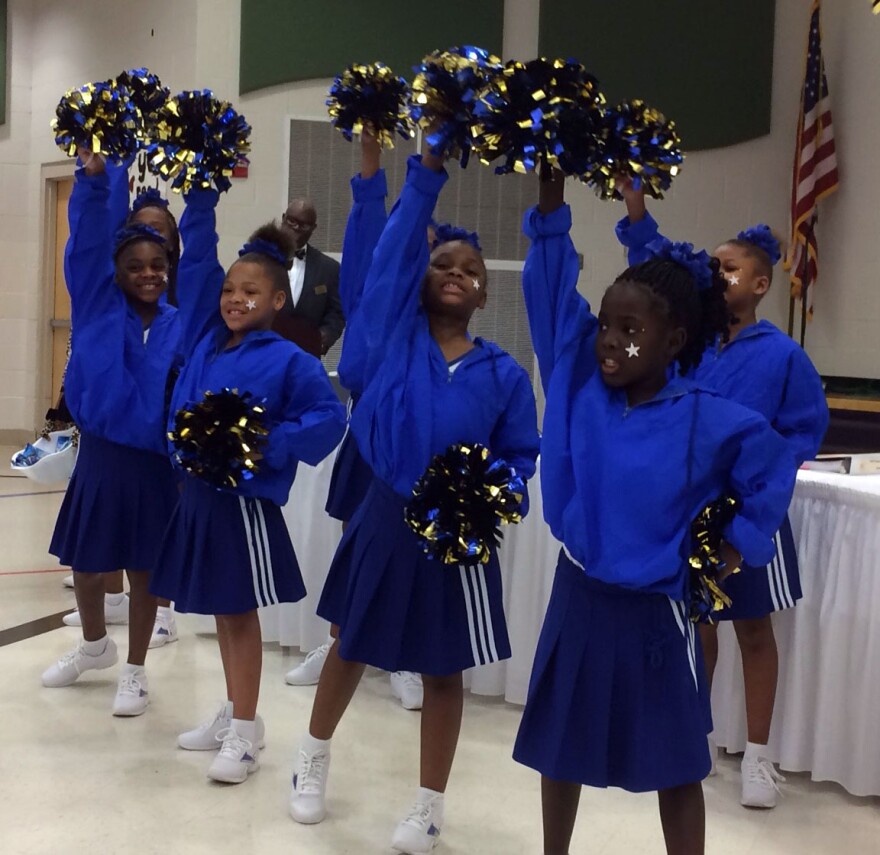On an evening when students in the Normandy Schools Collaborative expressed appreciation for their appointed board, the board voted to try to get more active involvement from the community at large.
Members of the Joint Executive Governing Board voted unanimously Thursday night to set up a community engagement group designed to help set long-term goals for the unaccredited district.
The appointed board has been in charge of Normandy since the beginning of the 2014-15 school year. That's when the former Normandy district was dissolved by the state board of education, and the collaborative was put in its place. Since that time, Normandy has shown improvement on its annual state report card, but it remains the only district in Missouri whose 2015 score was in unaccredited territory.
The new community group is charged with coming up with strategies to help the district improve and sustain its performance over the long term. That view matches the wishes expressed by several board members who emphasized that they were looking forward to a time when Normandy moves beyond worrying about accreditation.
Board Vice President Cedric Portis said there will be stressful times still ahead, but he put his philosophy this way:
“Accreditation is the short-term goal, not the finish line…. We are changing the landscape of a future yet to be realized.”
Board President Richard Ryffel said that the community needs to be a part of determining how that landscape will be shaped.
“We want to make sure we’re including the community to understand what is their long-term goal,” he said in an interview, “so that as we work toward accreditation and returning governance of the district back over to the community, there is no hiccup there and it’s consistent. We need to build consistency with the community.”
He noted that earlier in the life of the collaborative and the appointed board, public meetings brought a lot of criticism of how Normandy was operating. As that attitude has waned, so has attendance at board meetings, and Ryffel thinks the new community engagement group could help revive the public’s interest in Normandy schools.
“One of the things that’s been a challenge in a lot of districts like ours is just getting engagement at board meetings,” he said. “We’re not pleased with the level of participation that we have at meetings, attendance from parents and other stakeholders. So this will be a way to have more opportunities for people to engage other than twice a month meetings.”
He says that based on what he hears, the district is making progress.
“I think we’re on the right track,” Ryffel said. “Staff morale is very high. These things don’t change overnight, but I’m pleased with the direction that we’re headed in.”
But after a series of updates on operations in the district, Ryffel and Portis expressed dissatisfaction at the speed in which Normandy is moving to improve in areas such as food service and technology. They said ideas are not being carried out the way the board would like.
The new community engagement team is designed to help move things along as well as come up with new ideas and opinions in a wide range of areas, from academics to finances to school buildings. After recommendations are brought to the board in May, it wants Superintendent Charles Pearson to process to put them into action.
Before the meeting, students from Normandy schools took part in an appreciation program for the board. It included music, student writing and cheerleaders from Jefferson elementary school.
Follow Dale on Twitter: @dalesinger



